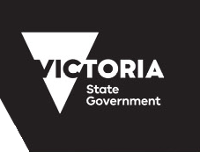Increasing soil knowledge by testing, training, talking and ground truthing regenerative farm practices and benefits in high rainfall zones
This multi-partner project will support 315 farmers managing 12,600 hectares to increase knowledge and uptake of sustainable and regenerative farming practices.
This will be achieved through a range of innovative and targeted programs including on-farm demonstration sites, comprehensive soil testing and benchmarking, supporting farmer driven discussion groups, knowledge building field days, and running farmer training and planning programs.
These will provide the agricultural community with skills and knowledge to implement regenerative management practices with confidence leading to improved natural resource management outcomes.


Themes and Local Areas
| Primary Theme: | Sustainable agriculture |
| Other Themes: | Waterways, Soil Health, Climate Change |
| Primary Local Area: | Casey, Cardinia & Baw Baw |
| Other Local Areas: | Bass Coast, South Gippsland & islands, Mornington Peninsula |
| Project location: | The area encompassing Western Port Catchment Landcare Network, Bass Coast Landcare Network, South Gippsland Landcare Network & Mornington Peninsula Shire |
| Scale of the project: | Landscape – multiple farming areas |
| New or continuing work: | Building on previous work |
Project partners
| Lead organisation: | Western Port Catchment Landcare Network |
| Key partners: | Bass Coast Landcare Network, South Gippsland Landcare Network, Mornington Peninsula Shire, Melbourne Water, AGVIC |
| Registered Aboriginal Party/s relevant to the project or its area: | Bunurong Land Council Aboriginal Corporation |
Investment opportunities
| Opportunities for investors within this project start from: | $$$ (Hundreds of thousands of dollars) |
| Estimated scale of investment for full project implementation: | $$$$ (Millions of dollars) |
| Estimated timeframe for full project implementation: | 10+ years |
Contribution toward targets
| Primary Regional Catchment Strategy target: | Sustainable agriculture systems – This region’s farms and agricultural industries are recognised as leaders in agri-ecological sustainability and resilience. This project will continue to support those who are already leaders and will seek to engage with those farmers who are seeking new information around regenerative and sustainable farming practices. Exposed soil – The proportion of exposed soil in the region remains in the range 10% to 15%, or less, each year from 2020 to 2050. This project will work with farmers to trial practices that can reduce the level of exposed soil in the region. Carbon emissions – Victoria has achieved net zero emissions. From the natural resource management sector, all water corporations have achieved net zero emissions. The agriculture sector has contributed to the achievement of this economy-wide net zero emissions target. This project will assist farmers to increase their knowledge of the benefits of being carbon positive through field days and training programs. Landcare group health – Landcare groups across the region maintain an average group health score of at least 3.7/5. This project is Landcare network driven, and as a result, has strong connections with Landcare groups. Projects such as this increase groups ability to link with professionals and engage in the wider community. |
| Relevant Biodiversity 2037 goal: | – |
| Relevant National Landcare Program priority: | Agriculture systems – Projects that support industries, farmers and fishers to adopt new management practices that help them to adjust to weather and/or climate variability Agriculture systems – Projects that assist agricultural systems (including marine) to adapt to growing market preferences for products with demonstrable traceability and sustainability |
More information
www.wpcln.org.au – Western Port Catchment Landcare Network


